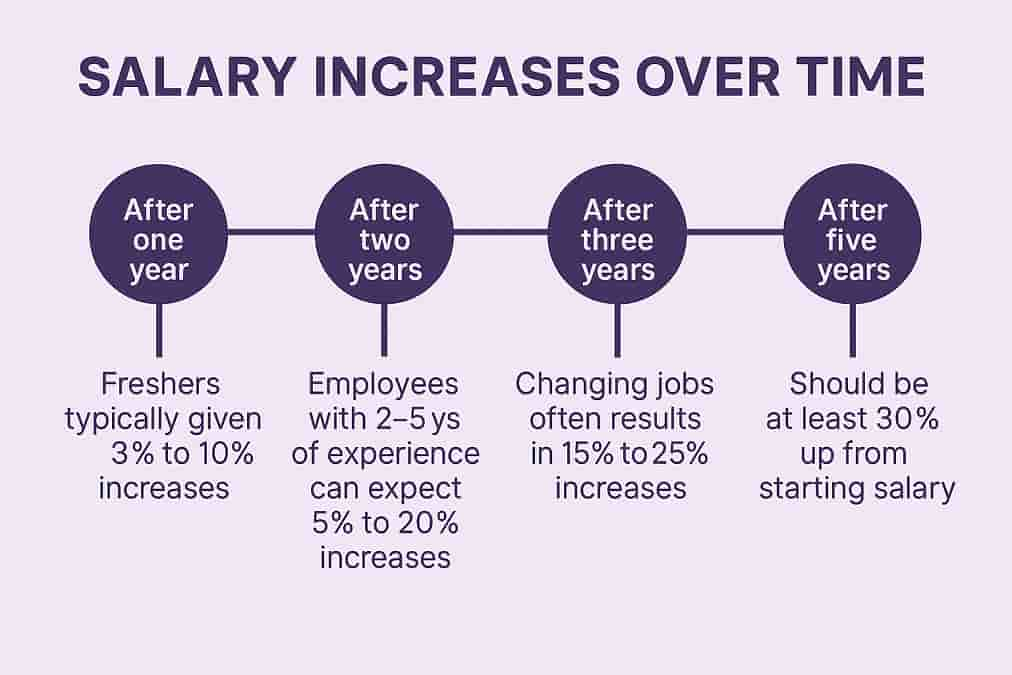In a country where discussing money at work is often viewed as taboo, an increasing number of UK employees are finding themselves ill-equipped to navigate conversations around pay rises, promotions, personal worth and fulfilment in the UK workplace.
Despite being told to “know your value” and advocate for fair pay, many workers in the UK workforce lack a clear understanding of what that value looks like. A staggering 53% of Brits are unaware of what their colleagues — particularly those in senior roles — earn, creating a culture of pay secrecy and disempowerment.
A lack of salary transparency: The loyalty penalty
Experts suggest that this opacity can be costly. Pernia Rogers, founder of Your Finance Travel Buddy, and Nisha Prakash, finance expert and lecturer at the University of East London, both warn that loyalty alone does not automatically translate into financial reward.
“In the UK, average salary increases based on tenure aren’t legally mandated,” says Nisha. “Instead, they hinge on sector standards, employer discretion, and individual performance.” According to Indeed, the average pay increase for experienced employees hovers between 3% and 5% annually. Anything above 10% is generally seen as a significant hike, often tied to internal promotions or external job changes.
Pernia adds that industries such as tech and finance tend to reward staff more generously, while public sector roles typically see slower growth — sometimes as little as 2% to 4% per annum.
Year-by-year expectations: Mapping realistic growth
For graduates and new young workers, salary progression may be modest in the first year. “Raises are usually minimal, reflecting inflation or the overall company performance,” Pernia notes, citing a personal example of a 1.75% raise during her graduate scheme.
The second and third years of employment often present an inflection point. Nisha explains that pay increases during these years tend to follow a bell curve, dependent on experience and responsibilities undertaken. Employees with two to five years’ experience can generally expect increases ranging from 5% to 20%, depending on job performance and market dynamics.
By the third year, however, the so-called “loyalty penalty” begins to show. Pernia warns that staying too long in one role without negotiation can leave you trailing behind the market rate. “When I changed jobs after 3.5 years, I saw a 64% pay increase,” she says. “Many who switch roles see jumps between 15% and 25%, compared to just 2% to 5% for those who stay put.”
At five years in, the picture becomes even clearer: if your earnings haven’t grown by at least 30% since you started, it’s time to benchmark externally and consider your options.
The promotion timeline: Patience with purpose
While salary growth is one part of the puzzle, promotion timelines are equally critical — and just as varied.
Nisha outlines a general trajectory:
- Entry to mid-level: 1–3 years, focused on core competencies and meeting deadlines.
- Mid-level to senior: 2–5 years, requiring leadership and specialist skills.
- Senior to management: 3–7 years, emphasising visibility and influence.
- Senior management roles (e.g. Director): 5–10+ years, with a focus on long-term impact and strategic business results.
In faster-paced environments like start-ups, this timeline can accelerate dramatically. In contrast, corporate structures may delay advancement — leading to career stagnation if not proactively managed.
“If you’re not promoted within the first three years despite consistent performance, it’s time to start asking questions,” Nisha advises. “A direct conversation with management can trigger a clear development roadmap or highlight the need to move on.”
Mastering the art of negotiation and visibility
Beyond hard work, the road to better pay and seniority requires a strategic approach. Visibility, alignment with company objectives, and clear communication with management are essential. Nisha encourages employees to be proactive: “Don’t assume your work will speak for itself. Blow your own trumpet.”
Workers are also urged to request structured feedback and specific guidance on the skills and outcomes required to move up the ladder. “Making your manager’s job easier,” Nisha says, “is often the quickest route to progression.”
Ultimately, if your current employer cannot offer a compelling path forward — financially or professionally — there’s no shame in exploring roles elsewhere.
The Workers Union Says…
“The uncomfortable truth is that too many UK workers are unsure of their financial standing. In the absence of transparency and regulation, it’s critical that individuals take ownership of their career development. From tracking salary benchmarks to negotiating assertively and setting realistic timelines for advancement, the tools are available — if you know where to look. No one should feel pressured to accept less than they’re worth. You’re not obliged to accept any offer that doesn’t meet your expectations.




